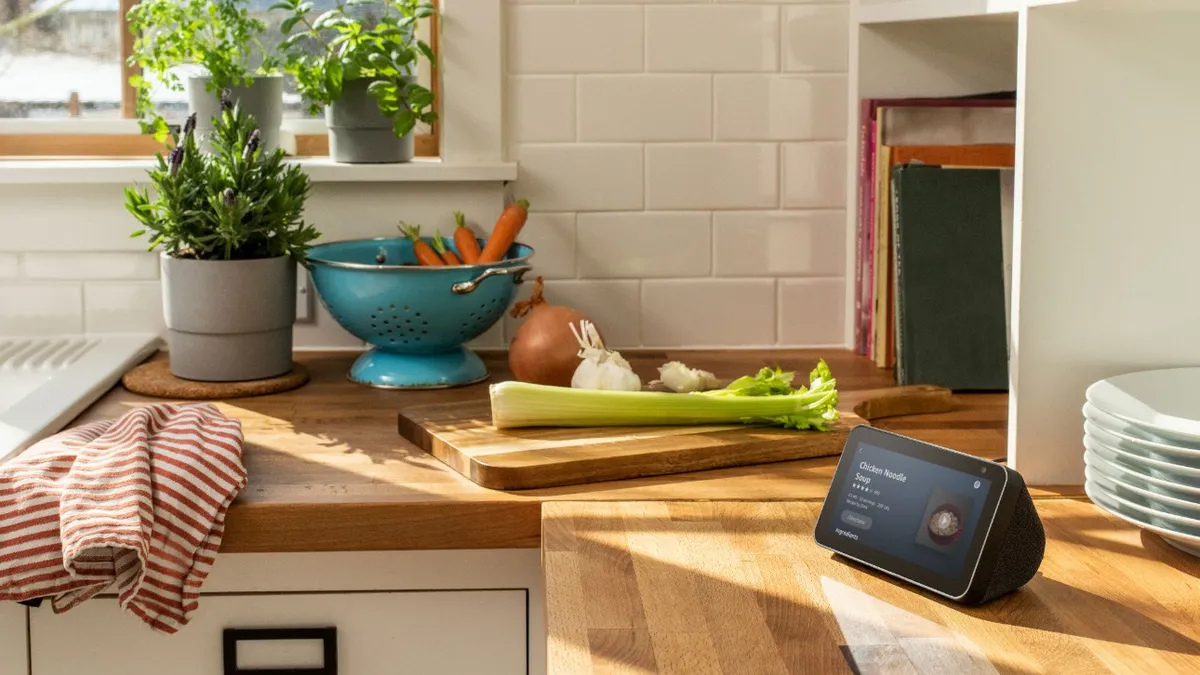Brief:
- Smart speaker shipments surged nearly 45% to 28.6 million worldwide in Q3 from a year earlier on strong Amazon sales. The e-commerce giant shipped 10.4 million Echo devices to post yearly growth of 66%, mostly powered by Prime Day and back-to-school campaigns, according to market researcher Canalys. Google's shipments of its smart speakers plunged 40.1% to 3.5 million in the quarter.
- Shipments of smart displays, which have video screens and make up 22% of the broader smart speaker category, soared 500% to 6.3 million worldwide in Q3 from the year prior. China's Baidu was the market leader with 2.3 million shipments, edging out Amazon's 2.2 million, followed by Google at 700,000 and Xiaomi at 600,000.
- China continues to be a significant source of smart speaker growth, with tech companies like Alibaba, Baidu and Xioami piling into the market, Canalys found. Shipments of Alibaba's Tmall Genie surged 77.6% to 3.9 million, Baidu's line of smart speakers jumped 290.1% to 3.7 million and Xiaomi's climbed 77.7% to 3.4 million.
Insight:
For mobile marketers, the continued swelling of smart speaker popularity provides a more significant channel for two-way communication with customers. That means they need to consider developing voice-enabled apps for platforms such as Amazon Alexa and Google Assistant that power smart speaker interactions.
The field is growing increasingly crowded as more tech giants vie for a slice of the emerging voice opportunity. Amazon in September announced that Alexa supports 100,000 skills, as apps for this platform are known, including ones that reach consumers around the globe. Google earlier this year said companies had created more than 4,200 actions, as its apps are called, for Google Assistant, Voicebot.ai reported.
Amazon's continued dominance of the smart speaker space demonstrates the company's ability to market the products effectively through its e-commerce platform, while other device makers scramble for space in retail stores that grapple with declining foot traffic. In a creative move to convert potential customers and bring them into the Amazon ecosystem, the e-commerce giant introduced an "Echo Upgrade Program" to urge existing users and people who own products from competitors like Google to trade in their devices. To boost growth, Google has sought more partnerships with companies like Spotify that help distribute its Home smart speakers to listeners, as Canalys notes in its report.
As voice technology improves and consumers become more familiar speaking to electronic devices, voice-powered shopping is forecast to gradually pick up steam. Among the approximately one-third of Americans who own voice-enabled devices, 31% use the technology to make purchases, per a recent report sponsored by payments company Visa. Last year, an eMarketer report predicted that voice commerce through smart speakers would reach $2.1 billion in 2018, and 74.2 million U.S. consumers were expected to use smart speakers at least once per month in 2019.












